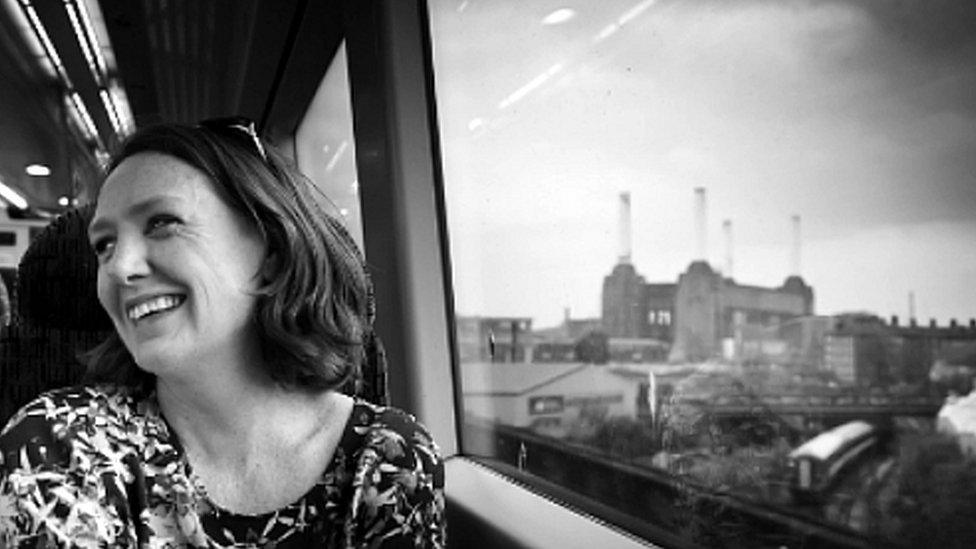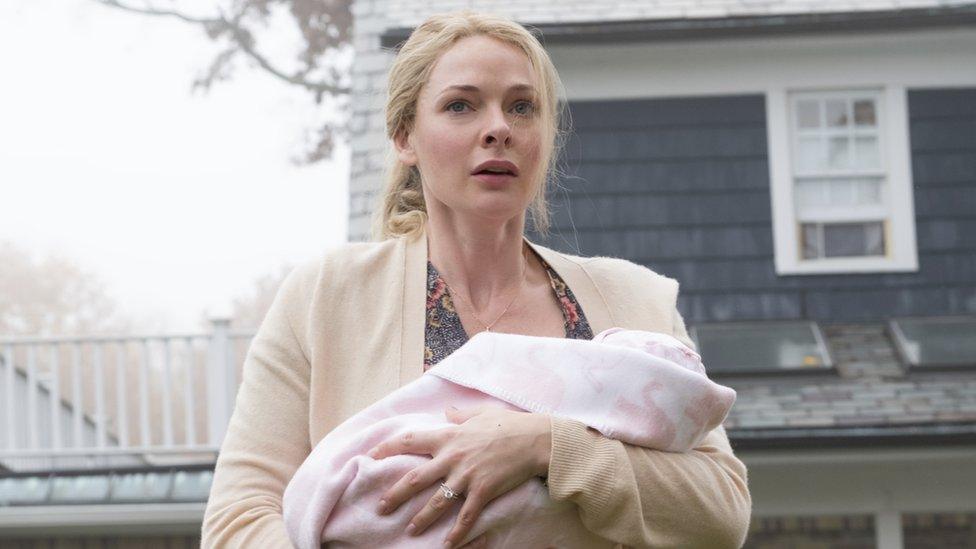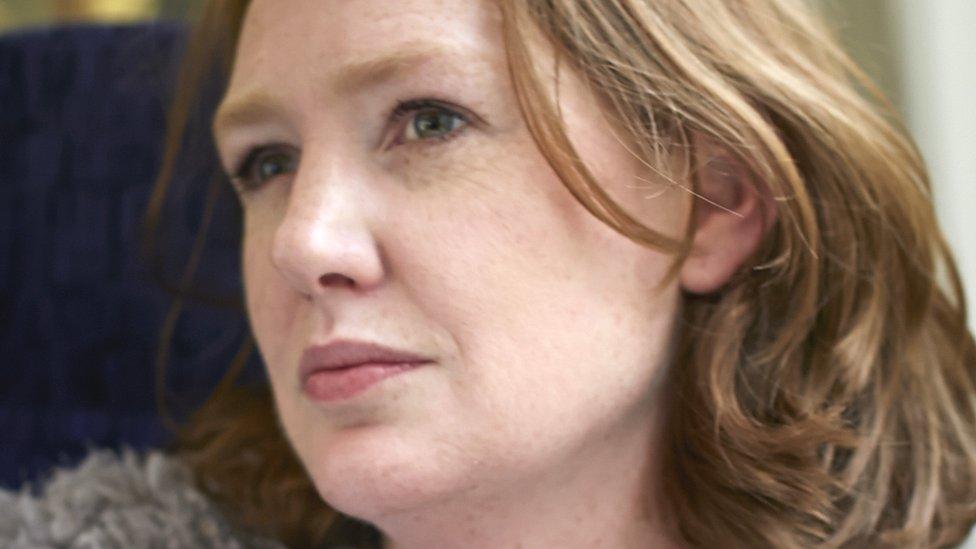100 Women 2016: Are difficult friendships better?
- Published

Paula Hawkins, author of best-selling thriller The Girl on the Train, says friendships between women are not always straightforward but often the most interesting.
My best friend and I broke up - a couple of times, actually - in our late 20s. We fought, stopped talking to each other, missed each other, got back together, moved on.
We did not argue over men - nothing so trivial. Our disagreements were about the important stuff: politics, family, motherhood, the choices we'd made. The mistakes we'd made.


What is 100 women?
BBC 100 Women names 100 influential and inspirational women around the world every year. We create documentaries, features and interviews about their lives, giving more space for stories that put women at the centre.
We want YOU to get involved with your comments, views and ideas. You can find us on: Facebook, external, Instagram, external, Pinterest, Snapchat, and YouTube.
Spread the word by sharing your favourite posts and your own stories using #100women

We split up, but we got back together. We supported each other, stood up for one another, fought each other's corner. We offered shoulders to cry on, we were each other's cheerleader. It was complicated. It still is, sometimes.
Ah, the complicated female friendship. This is how the narrative goes: men are friendly in straightforward, uncomplicated ways, but women are different. Their relationships with each other are fraught with contradictions and competitive urges, dogged by petty jealousies and insecurity. Complex.

The protagonists of the Girl on the Train often compete with and misunderstand each other
Of course there is no such animal as a "female friendship" any more than there is a male one; friendships are as diverse and varied as people are. The troubled relationship I had with my best friend in my 20s is by no means representative of all my friendships. Some are sunnier, they've been smoother sailing - even if I sometimes wonder if that is because the waters are shallower.
Another unsatisfactory thing about that narrative is the idea that the simple friendship is necessarily better - healthier - than the complicated one. Why does simplicity trump complexity? Isn't it possible that with complexity comes a depth of feeling, an emotional intensity that simplicity lacks? And might it not be the case that these friendships occasionally press on our bruises, causing hurt sometimes, but also forcing us to know ourselves better in the process?
Women in their 20s and 30s are confronted by hard choices. The question of whether to have children is necessarily more urgent for a woman. The question of whether or how best to combine parenthood with a career is something that rarely troubles men.
And it is in the context of those hard choices that divisions arise. It is almost impossible not to be made to feel sensitive, even defensive, about those choices when they are scrutinised and picked apart by family, friends, the media, society at large.
When women do disagree about important, life-changing, life-defining decisions, their differences of opinion are characterised in a very specific way. They are cast as catfights or Mommy Wars - bitchy, vicious, claws-out, hair-pulling affairs, a far cry from the sober disagreements in which men (occasionally) find themselves embroiled.

Hawkins says friendships get easier as time goes on
What struck me when writing the female characters in The Girl on the Train was how easily women under strain might internalise misogynist sentiment, how simple it might become, when threatened, to throw around the epithets of "bunny boiler" or "home-wrecker" or "whore".
It is hard for young women to negotiate the spaces around motherhood, career and relationships and in the novel they do it with varying degrees of success (or more accurately, varying degrees of failure).
There are few truly good things about getting older, but here, in my opinion, are two. First, no-one bothers to catcall you in the street any longer. And second, friendship gets easier.
That relentless scrutiny of our choices lessens and we are left to have the friendships we ought to have. They might not be simple, but why should they be? Why shouldn't friendship be just as deep and complex and enriching as a love affair?
Join the conversation - find us on Facebook, external, Instagram, external, Snapchat , externaland Twitter, external.